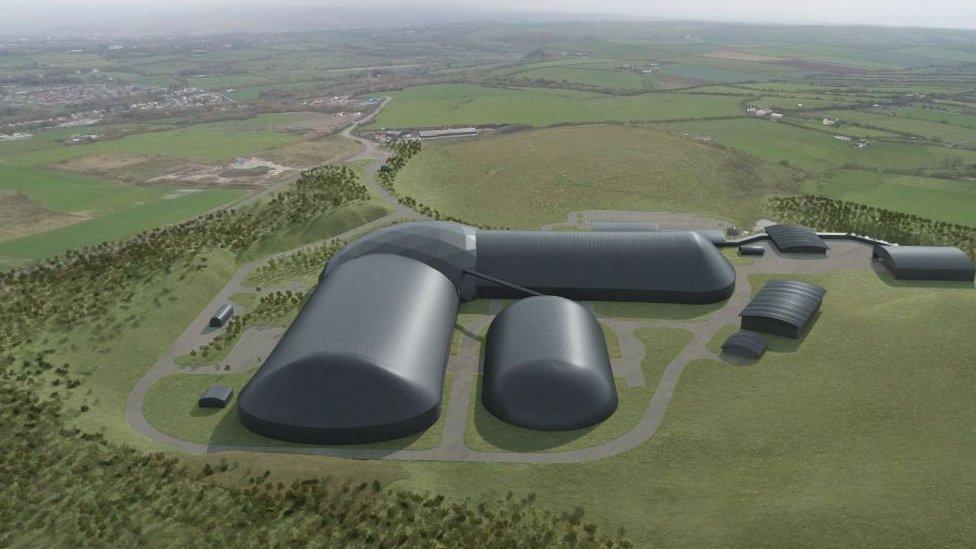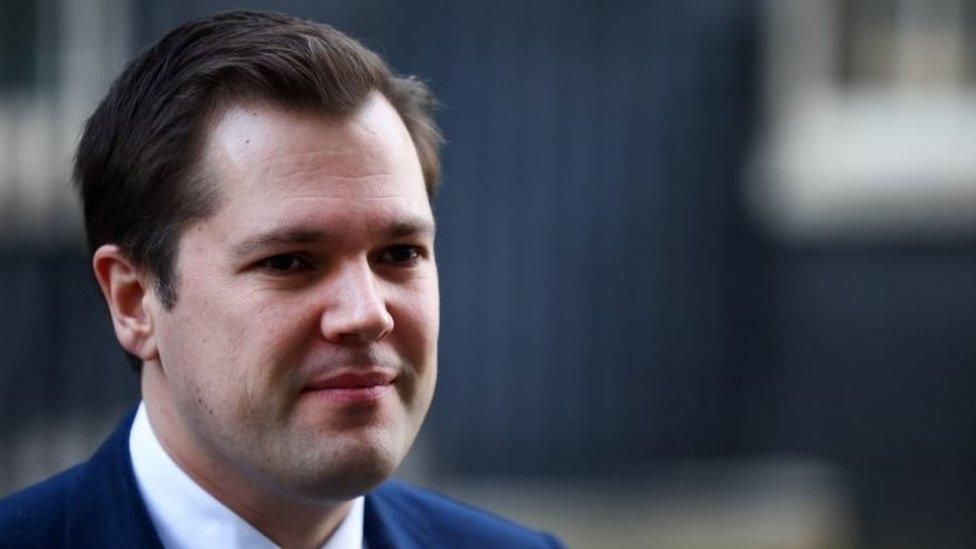Climate change: Six questions about the Cumbria coal controversy
- Published

The government has been pressured into calling a public inquiry into a proposed new coal mine in Cumbria.
The county council at first approved the colliery, and the government decided not to challenge the decision.
After an outcry from environmentalists, the council decided to review its decision.
But now ministers have taken over the process, following weeks of angry criticism from climate experts and campaigners.
1. Why is the mine controversial?
A firm applied for planning permission to dig for coking coal in Cumbria, and councillors approved the bid. They said the scheme did not contravene planning rules and would help diversify jobs.
But coal is seen as the dirtiest of the fossil fuels driving up global temperatures. The British government heads a UN climate summit in November and has launched the Powering Past Coal alliance of nations to relinquish coal.
Fiji is an alliance member - and its UN ambassador Satyendra Prasad told me opening a new mine sends the wrong signal.
"Investment in renewables in place of coal is the morally correct choice," he said.
"In the global climate struggle, words are extremely important. Deeds matter even more."
2. Why didn't the government block the mine?
This was a thorny decision.
Communities Secretary Robert Jenrick could have overridden the council but, amid the turmoil of the January Covid lockdown, he put out a notice saying he would not block permission because it was a "local" issue.
Environmentalists were furious, saying climate change was the ultimate global problem.

Robert Jenrick chose not to overrule the local council
The government later told me there were no grounds to block the application under planning law. A spokesperson said leaving the decision to the council aligned with the Tory principle of having decisions taken at the lowest possible tier of government.
But then the council itself decided to review its approval of the mine, because councillors said they hadn't taken the climate change question into account in their discussions.
Ultimately, the government decided it would review the issue itself, with a public debate over the issues involved.
3. Was the government under pressure to approve the mine from its own MPs?
Yes. The mine lies in the Copeland constituency in a cluster of so-called "red wall" seats won by the Conservatives from Labour.
Cumbria has low unemployment (2.8% from July 2019-June 2020 compared with 3.4% in Copeland and 3.8% nationally) but local MPs argued that well-paid manual jobs shouldn't be turned away.
The Copeland MP Trudy Harrison is the prime minister's parliamentary aide and it's hard to conceive that she did not drop a word in his ear, although she wouldn't talk to me about that.
4. Are the local MPs prioritising jobs over climate change?
They insist they're not. The key to the debate, they say, is that the mine will produce coking coal, which is needed for steel.
The government is phasing out thermal coal for power stations by 2025 but has not announced any plans to phase out coking coal.
The advisory Climate Change Committee says the UK must stop burning coking coal by 2035 in order to hit climate targets. I understand the committee fears that if the mine goes ahead its owners and workers will lobby to keep it running after that date.
But the MPs fear that the technology to create steel using non-coal methods such as hydrogen won't be ready by 2035.
Mark Jenkinson, Tory MP for nearby Workington, told me: "It's better for the environment to dig coking coal from Workington than from Wyoming, because it saves on emissions from transport. We can't let other countries pick up the tab for emissions on our behalf."
5. What do environmentalists say?
Environmentalists have long called for a moratorium on new fossil fuels.
When John Sauven, from Greenpeace, heard that approving the mine was considered a local decision he said: "Let's hope China doesn't take the same view - or the world will be toast".
He's written to Boris Johnson saying: "As host of the largest global climate talks since the signing of the Paris Agreement, it is mystifying that a new coal mine has been approved.
"This will make it much harder to fulfil the ambitions of the alliance to phase out coal. We call on you to reverse the decision".
Labour's Climate Change lead Matthew Pennycook agreed. "This makes a mockery of the government's claim to be a climate leader, and won't provide the long-term job security Cumbrians deserve," he said.
"Decarbonised steel is the future and Ministers should be relentlessly focused on developing an active industrial strategy that will attract good, low-carbon jobs and investment to counties like Cumbria."
The Liberal Democrats and Greens agree.
6. So what happens now?
The government will hold a public inquiry to allow supporters of the mine and environmentalists to put their opposing cases.
There's no timetable for the inquiry yet, but the government will be hoping that the controversy has been kicked into the long grass until at least after it hosts the UN climate summit in November.
Environmentalists will doubtless accuse the government of failing to take a stand.
The inquiry will examine evidence from the Climate Change Committee against the mine, and the counter-case from those who believe the mine is needed to support the UK steel industry. In effect, climate strategy and industrial strategy will both be on trial.
In the meantime, pressure will increase on ministers to agree policies that will stimulate green jobs in West Cumbria, which has an unemployment rate just below the national average, but where jobs are heavily concentrated in the nuclear sector at Sellafield.
Follow Roger on Twitter @rharrabin